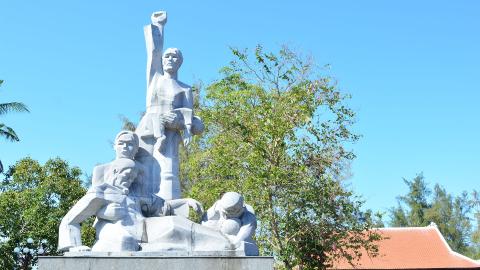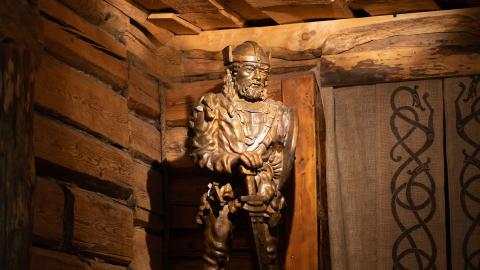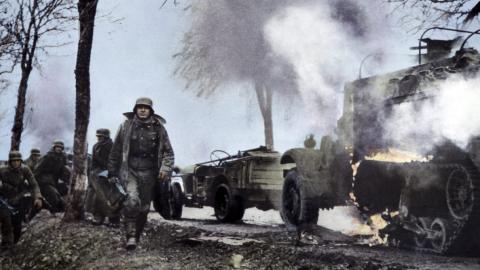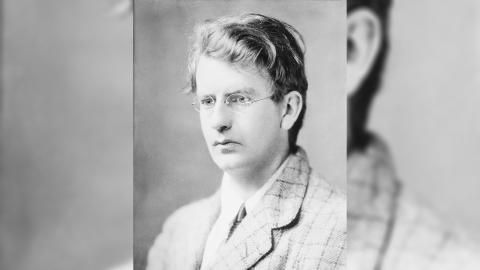Listen to Not What You Thought You Knew S2
Each episode unearths largely unknown personalities and details from history; from the incredible facts about female Viking warriors and the elite Theban warrior core, (made up of 150 pairs of male lovers), to Europe’s first openly transgender combat soldier and the Soviet Night Witches; the fearless Russian female fighter-bomber pilots who struck terror into the hearts of German troops on the Eastern Front in World War 2.
Available on Apple Podcasts, Google Podcasts, Spotify, Acast or wherever you get your podcasts.
Episode 1. Inghen Ruaidh, the Birka Grave and Viking warrior women
More than a millennium ago in Sweden, a wealthy Viking warrior was laid to rest, in a grave filled with swords, arrowheads, and two sacrificed horses. The site reflected the ideal of a Viking male warrior life but new DNA analyses of the bone the grave belonged to a woman. Does this help back up legendary representations of Viking warrior women such as Inghen Ruaidh?
Episode 2. The Chevalier d'Éon and Gender Nonconformity
A soldier and diplomat, the Chevalier d'Eon was one of the most colourful and celebrated characters in eighteenth-century Britain. Although born in France, he lived in London from 1762-1777 as a man, and from 1786-1810 as a woman - they were the first openly transgender person in European history.
They flew at night in plywood biplanes. They braved bullets and frostbite in the air, while battling scepticism and sexual harassment on the ground. They were feared and hated so much by the Nazis that any German airman who downed one was automatically awarded the prestigious Iron Cross medal. They were a crucial Soviet asset to winning the Second World War.
Episode 3. The Night Witches and the Fighting Women of the Soviet Union
They flew at night in plywood biplanes. They braved bullets and frostbite in the air, while battling scepticism and sexual harassment on the ground. They were feared and hated so much by the Nazis that any German airman who downed one was automatically awarded the prestigious Iron Cross medal. They were a crucial Soviet asset to winning the Second World War.
Episode 4: Britain’s First Black Footballers
In 1925, Jack Leslie had his England international call-up taken away, 44 years after Scotland’s Andrew Watson had become Britain’s first Black international player. We look at historic representations of footballers in newspaper coverage and compare it to today, where we are still on the hunt for equality in the beautiful game.
Episode 5: The Ivory Bangle Lady
The Ivory Bangle Lady is the name given to remains discovered in York in 1901 which are now on display in the York Museum. Archaeological analysis reveals that although she was born in Roman Britain, she’s likely to be of North African descent. She was found with jet and elephant ivory bracelets, earrings, pendants, beads, a blue glass jug and aglass mirror; so clearly a person of some note and reverence.
Episode 6: Allan Noel Minns
A black military officer during the Great War and the son of Britain’s first Black mayor, Allan Noel Minns was an English doctor of African-Caribbean descent who served as an officer in the British Army.
Episode 7: Olaudah Equiano
Kicking off Black History Month, the podcast topic is Olaudah Equiano. He was known for most of his life as Gustavus Vassa, was a writer from the Eboe region of the Kingdom of Benin. Enslaved as a child, he was taken to the Caribbean and sold as a slave to a Royal Navy officer. He was sold twice more but purchased his freedom in 1766. In 1783 he played an integral role in a famous court case that spurred on the abolitionist movement.
Episode 8: The Sacred Band of Thebes
Thebes was one of the powerful city-states that in the 4th century controlled modern-day Greece and one of the main rivals to the empire of Athens. The Sacred Band were an elite troop of warriors within the Theban army formed by the Theban general Gorgidas that consisted of 150 pairs of male lovers.












